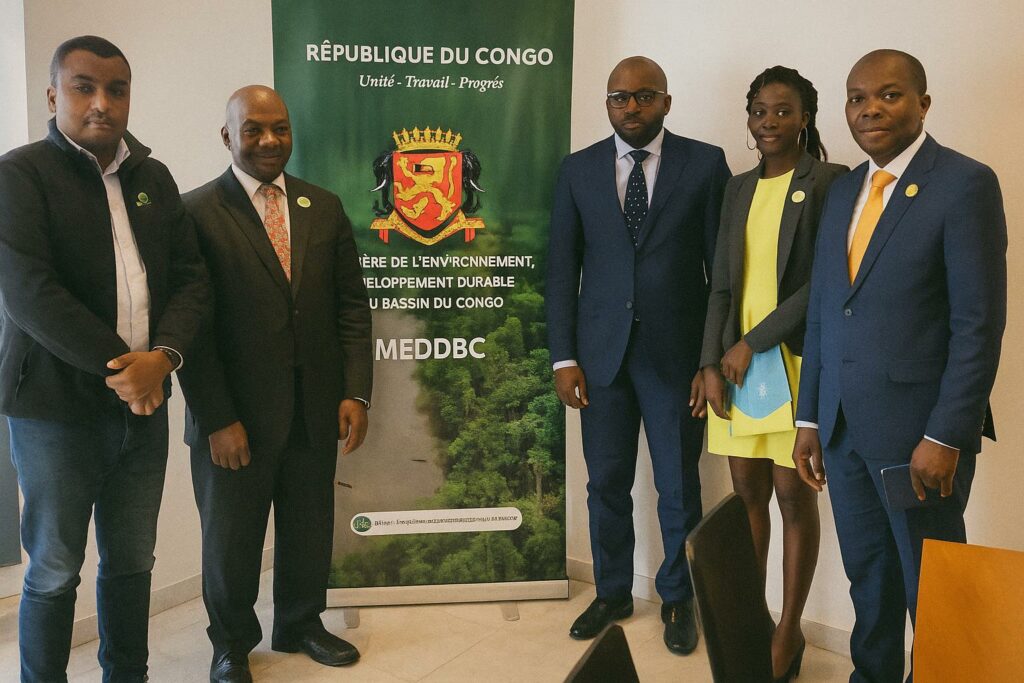Brazzaville’s green ambition gains momentum
A careful, almost discreet recalibration of the Congolese tourism narrative has been unfolding in government salons and private boardrooms alike. While hydrocarbons still dominate macro-economic statistics, the Ministry of Environment, Sustainable Development and the Congo Basin has quietly embraced a complementary ambition: to transmute the country’s largely intact tropical forests into an internationally credible destination for sustainable travel. The partnership sealed this summer with Wild Safari Tours, an African operator known for its low-impact logistics, marks a decisive step in that direction.
Between carbon sinks and market demand: the rationale for sustainable tourism
The Republic of Congo hosts roughly 10 per cent of the Congo Basin rainforest, a biome that sequesters an estimated 1.2 billion tonnes of CO₂ annually (World Bank 2023). International carbon markets increasingly reward such natural capital, but officials in Brazzaville argue that revenues should be diversified. Tourism arrivals were still modest at 201,000 before the pandemic, yet the United Nations World Tourism Organization projects a continental rebound of 3.2 per cent per annum through 2030 (UNWTO 2023). Analysts at the African Development Bank note that high-yield, conservation-friendly visitors spend several times more per capita than mass-market tourists. In that arithmetic, pristine forest becomes both a climate asset and a hard-currency earner.
The Nabemba Tourism Expo 2025: infrastructure and vision
Scheduled for November 2025 inside the newly opened Brazza Mall complex, the inaugural Nabemba Tourism Expo (NTE) will convene investors, conservation NGOs, technology firms and diplomatic envoys under a single dome. The venue was chosen for its fibre-optic connectivity and conference halls built to International Congress and Convention Association standards, an unusual luxury in the sub-region. Event director Yvette Okemba of Wild Safari Tours insists that the show is less a trade fair than a ‘proof of concept’ demonstrating that Congo can host carbon-neutral events at scale.
Officials confirm that power for the Expo will be drawn partly from the nearby Liouesso hydro scheme, supplemented by rooftop solar arrays, while waste will be processed through a pilot circular-economy plant financed by the Global Environment Facility. These technical details, seemingly mundane, are integral to the messaging: sustainability is not only a product to be marketed but a practice to be internalised.
Public-private synergy under ministerial stewardship
Minister Arlette Soudan-Nonault, who also serves as government spokesperson on climate issues, has accepted to moderate a plenary on ‘Climate Diplomacy and Green Market Access’. Her portfolio has expanded since the 2021 presidential directive that created a single inter-ministerial window for eco-tourism licensing. In conversation, the minister notes that ‘the private sector brings agility, but the State must guarantee that our biodiversity is never auctioned to the lowest bidder’. Her remark encapsulates Brazzaville’s balancing act: welcoming foreign capital without compromising sovereign stewardship over endangered landscapes.
The policy architecture includes fiscal holidays for eco-lodges built with at least 60 per cent local materials, as well as a biodiversity offset fund into which each new concessionaire commits 2 per cent of annual turnover. Early beneficiaries such as Odzala Discovery Camps describe the regime as predictable and ‘radically simpler than in neighbouring jurisdictions’.
Safeguarding biodiversity while creating jobs
Conservationists point to the Sangha Trinational landscape, already inscribed on the UNESCO World Heritage list, as evidence that community-based protection can coexist with tourism revenue streams. Since 2012, the site has generated over 1,200 local jobs, two-thirds of which are filled by previously unemployed youth (UNESCO 2024). Wild Safari Tours plans to replicate that model in yet-undesignated corridors linking Nouabalé-Ndoki National Park to the northern town of Ouesso, thereby helping to prevent habitat fragmentation.
Dr. Richard Munang, Africa Regional Climate Coordinator at UNEP, applauds the initiative: ‘Sustaining the Congo Basin’s forests is not only a local imperative but a global one; tourism, when well governed, can translate that principle into household income’. His assessment is echoed by the World Wide Fund for Nature, which argues that visitor quotas and clear zoning can mitigate the risk of over-use (WWF 2022).
Diplomatic reverberations and regional leadership
For Brazzaville, the Nabemba Tourism Expo is also an exercise in soft power. Delegations from Cameroon, Gabon and the Central African Republic have signalled their attendance, ostensibly to study Congo’s single-window licensing system. Should the framework prove exportable, the Republic of Congo could strengthen its position as a convening power on climate governance in Central Africa, complementing its long-standing role in the Congo Basin Forest Partnership.
There is, moreover, a reputational dividend. As Foreign Minister Jean-Claude Gakosso observed at the last Africa Climate Week, ‘our diplomatic credibility is reinforced when our domestic policies align with the multilateral commitments we advocate’. A successful Expo would furnish tangible proof of that alignment, sending a message that the green transition can be synonymous with commercial opportunity.
Looking beyond 2025: metrics for success
Stakeholders converge on a set of measurable targets: doubling high-end tourist arrivals to 400,000 by 2028, maintaining forest cover above 65 per cent of national territory, and channelling at least 30 per cent of tourism receipts into community projects. These benchmarks resonate with the African Union’s Agenda 2063 and the Glasgow Leaders’ Declaration on Forests. Whether they will be achieved depends on continued policy coherence and the ability to navigate global headwinds, from volatile commodity prices to shifting traveller preferences.
Yet, the scaffolding is in place. Congo’s green tourism blueprint is buttressed by robust political will, a maturing private sector and an ecological endowment few countries can match. If the Nabemba Tourism Expo succeeds, Brazzaville may well find itself at the forefront of a continental reimagining of how forests, finance and foreign visitors interact.

